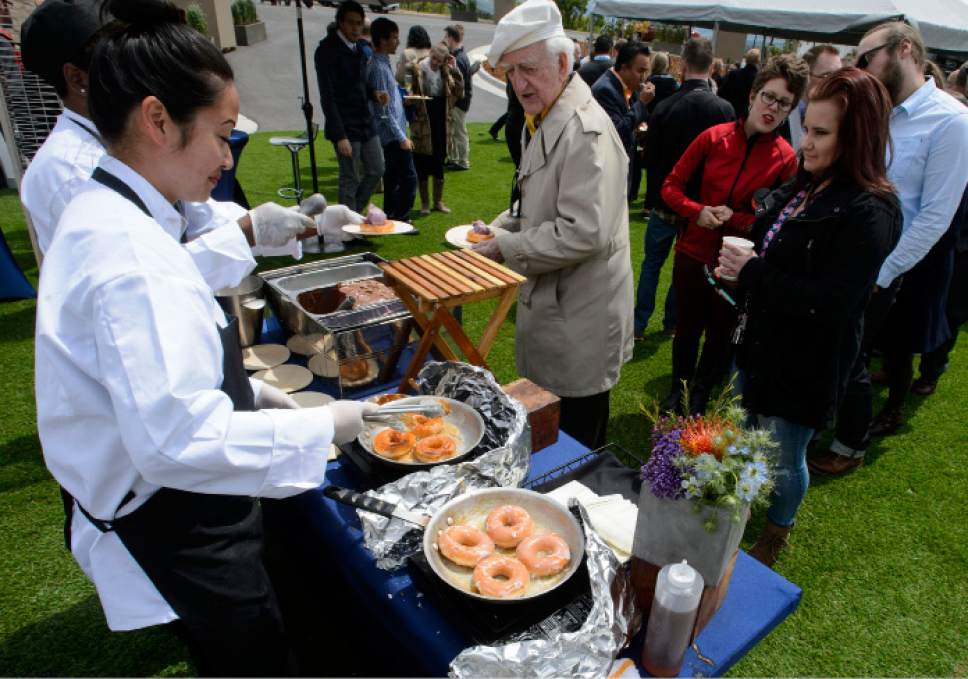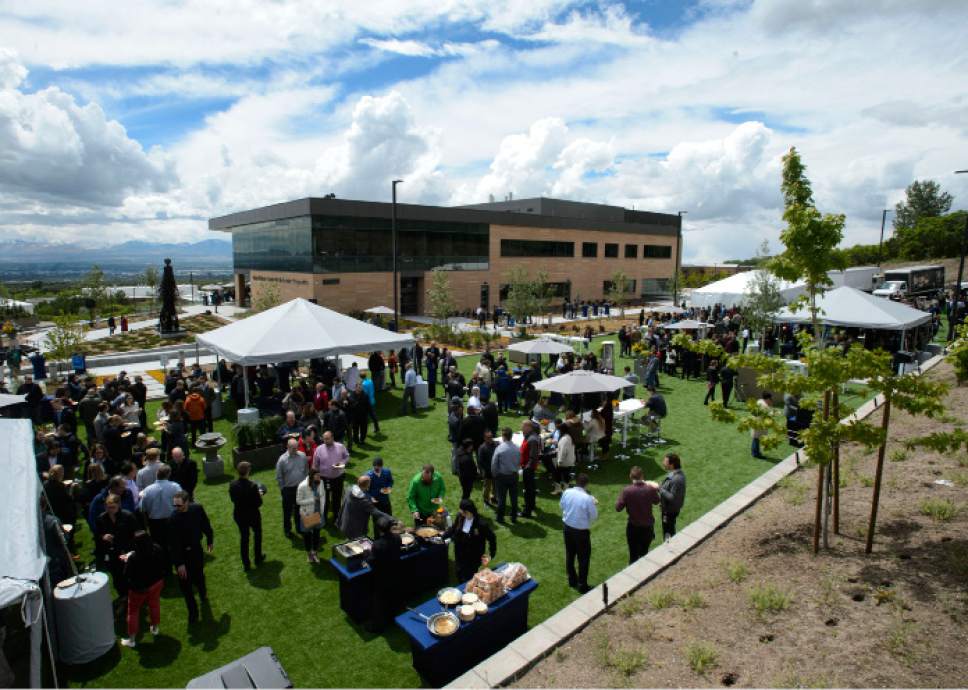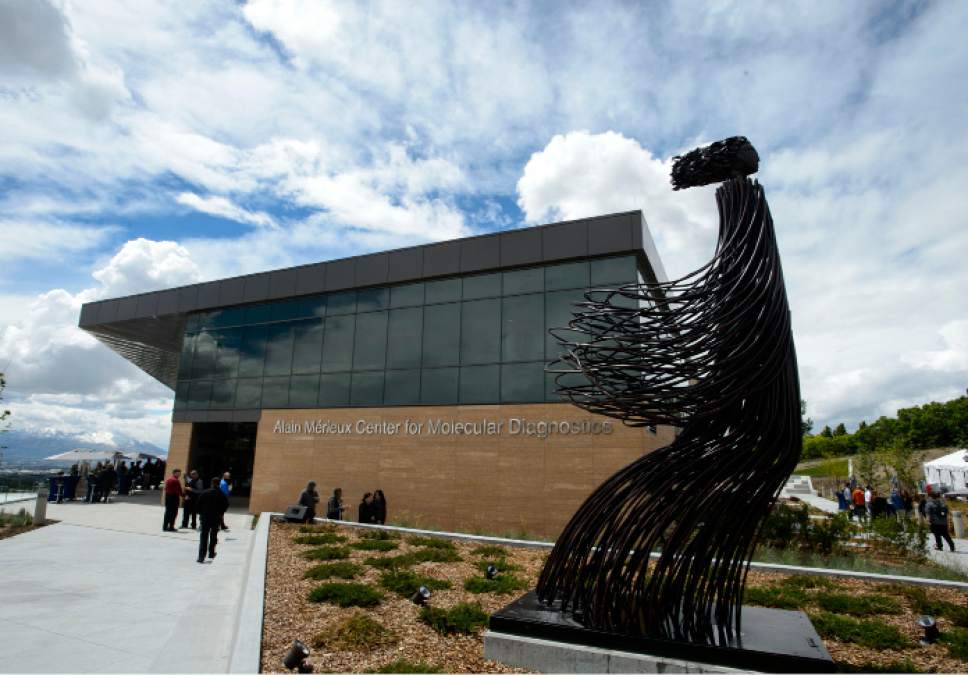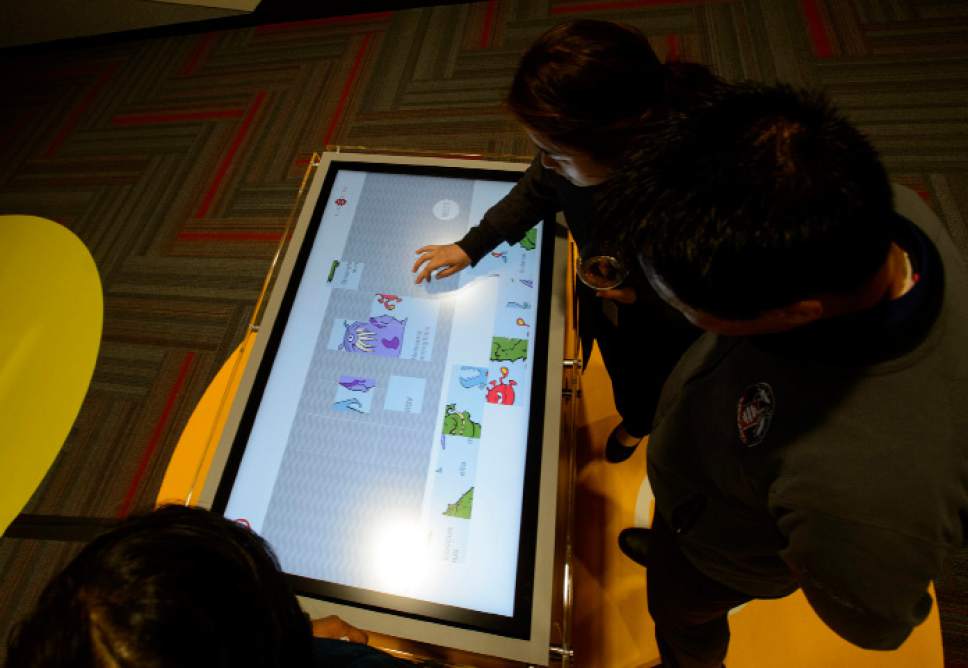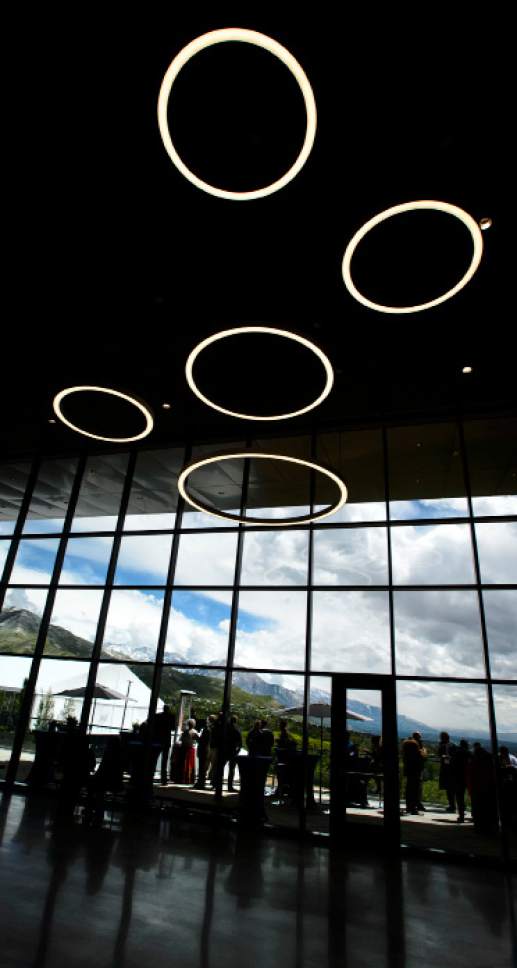This is an archived article that was published on sltrib.com in 2017, and information in the article may be outdated. It is provided only for personal research purposes and may not be reprinted.
BioFire Diagnostics, LLC, whose products have drastically cut the laboratory time needed to detect and identify infectious diseases, formally opened a new $100 million hub in Salt Lake City on Wednesday to house its research and manufacturing operations.
Alain Mérieux, founder of the French company bioMérieux that bought BioFire three years ago, cut the ceremonial ribbon for the facility in the University of Utah's Research Park along with his wife, Chantal. The facility is called the Alain Mérieux Center for Molecular Diagnostics.
The 285,000-square-foot building, designed by FFKR Architects, will serve as a hub for the company's international operations, said Mérieux. The new building allows the company to consolidate from a number of buildings in Research Park into one, with space to grow, he said.
"They have the size to foresee [growth] for the next five, 10 years," said Mérieux.
BioFire, which started in Idaho Falls as Idaho Technology before moving to Salt Lake City, developed a system of hardware, software and biotechnology that cut the time it takes to identify infectious diseases from a day or more to only one hour.
About 1,200 employees work in the new building and the company currently has about 200 openings for researchers, engineers and employees in manufacturing and other specialties.
"We really feel like it's important to have the researchers and the people making the product close to each other and informing each other about what's important," said Randy Rasmussen, BioFire's CEO and a co-founder of Idaho Technology. "That kind of communication is just invaluable."
The company currently manufactures its diagnostic machines, each about the size of a home printer, at the Salt Lake City building, along with the disposable pouches it uses. A doctor who, for example, suspects a patient has a respiratory disease will take a swab from the person's nose. The sample is placed in a pouch and inserted into the machine and about an hour later, the particular pathogen that caused the disease is identified, allowing doctors to treat the patient with the proper drugs or not to give them antibiotics if a virus is present.
The company also has tests for bloodstream infections, gastrointestinal sicknesses and meningitis/encephalitis. In 2014, sister company BioFire Defense sought emergency authorization from the U.S. Food and Drug Administration to allow hospitals to use its laboratory tool to quickly test patients for Ebola, which the agency later granted.
Rasmussen said part of the speed of the company's diagnostic technology is due to its ability to look for multiple pathogens in the same sample. Previously, a lab might have to test for various ones in sequence, hoping to hit on the right one.
BioMérieux has about $2 billion in annual revenue with a presence in 150 countries through 42 subsidiaries and a network of distributors. Rasmussen estimated BioFire may account for about 20 percent of that revenue. BioFire's revenues grew 60 percent last year, he said.


